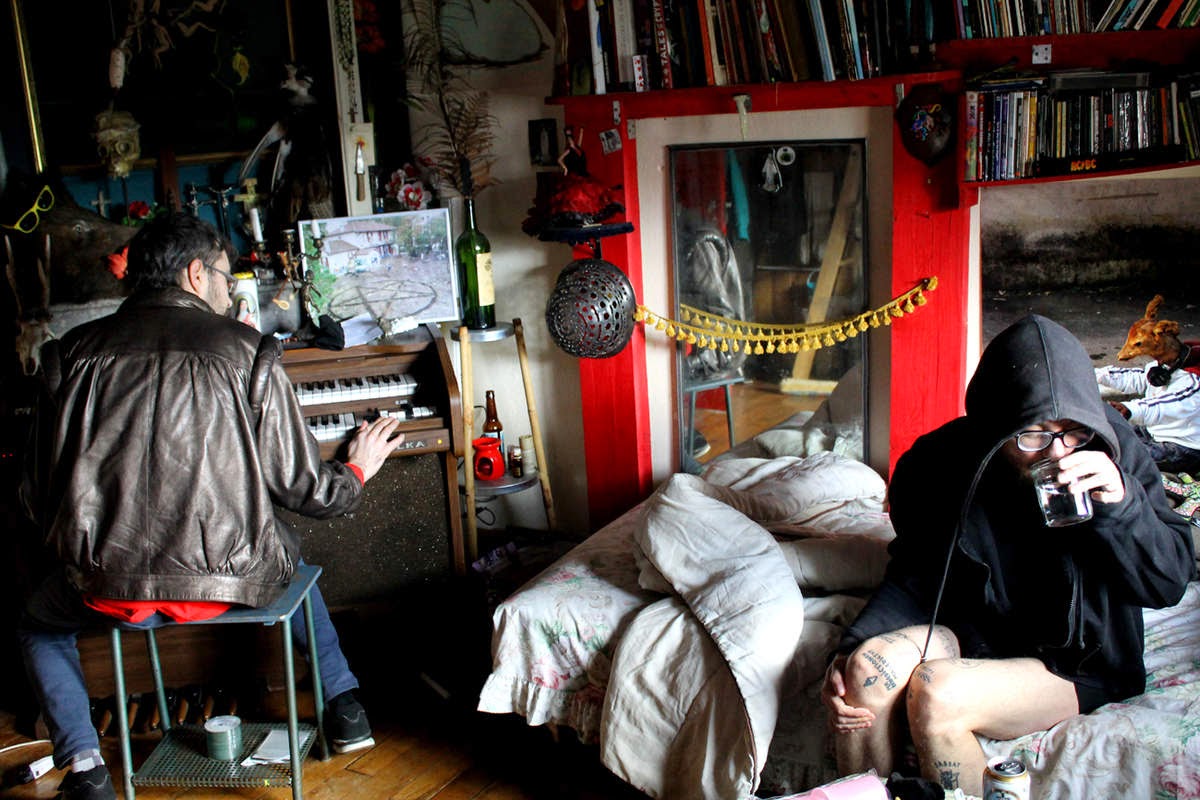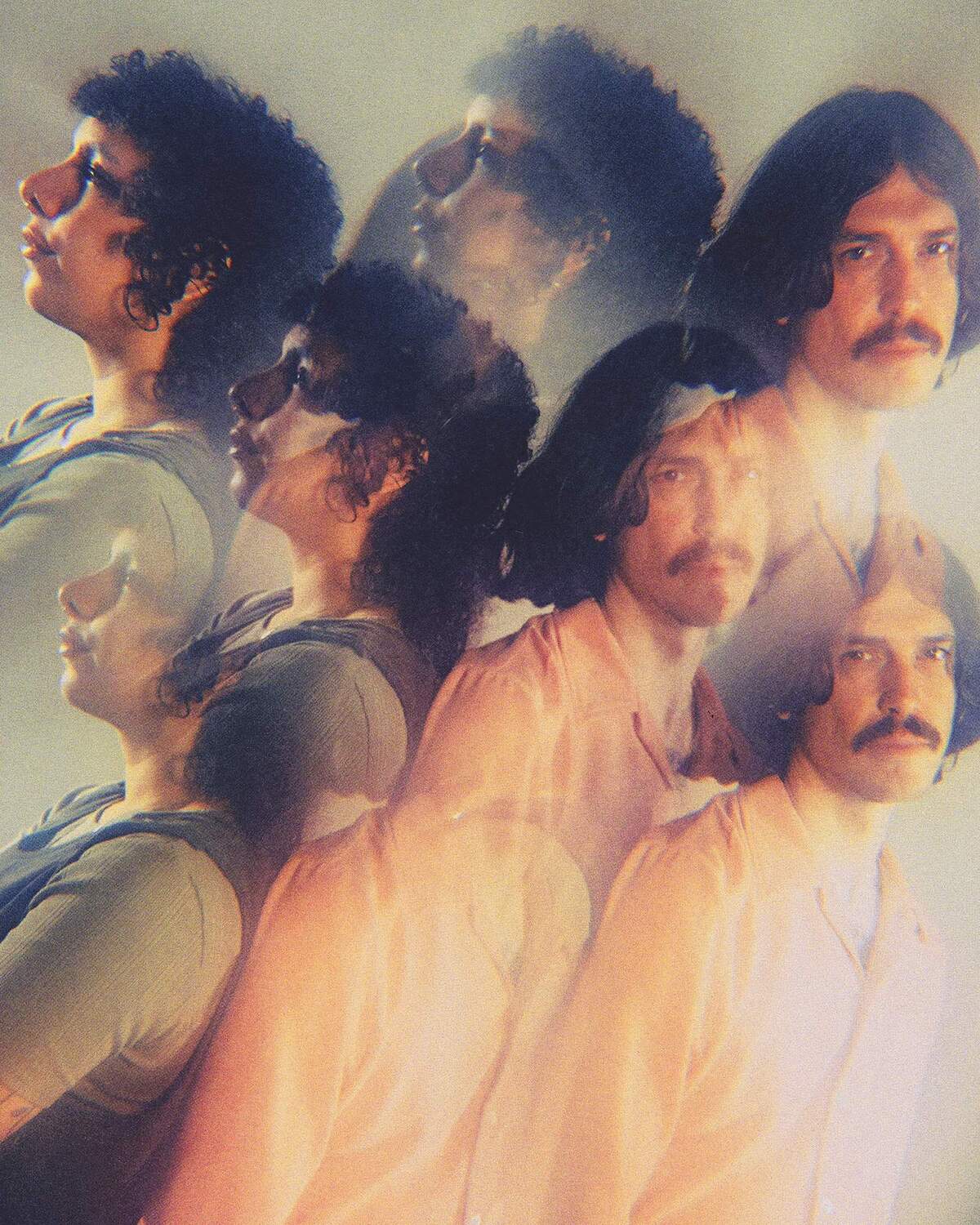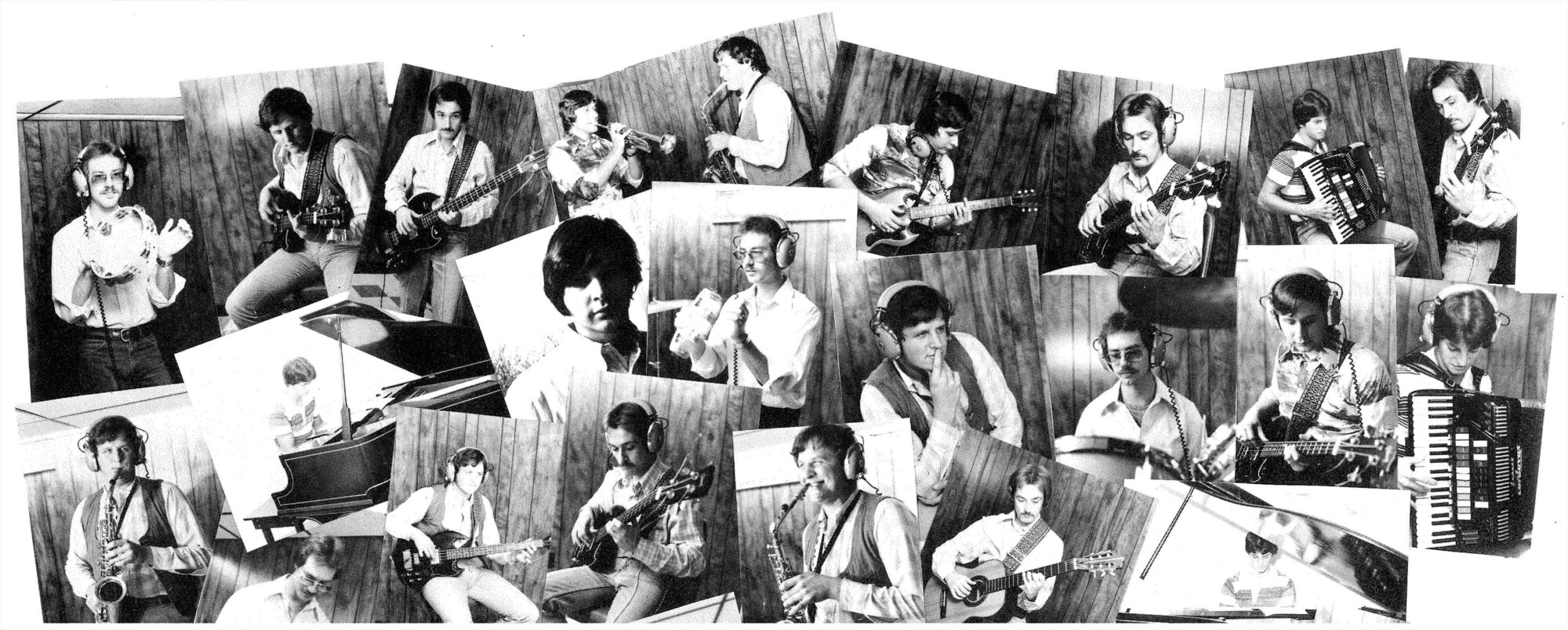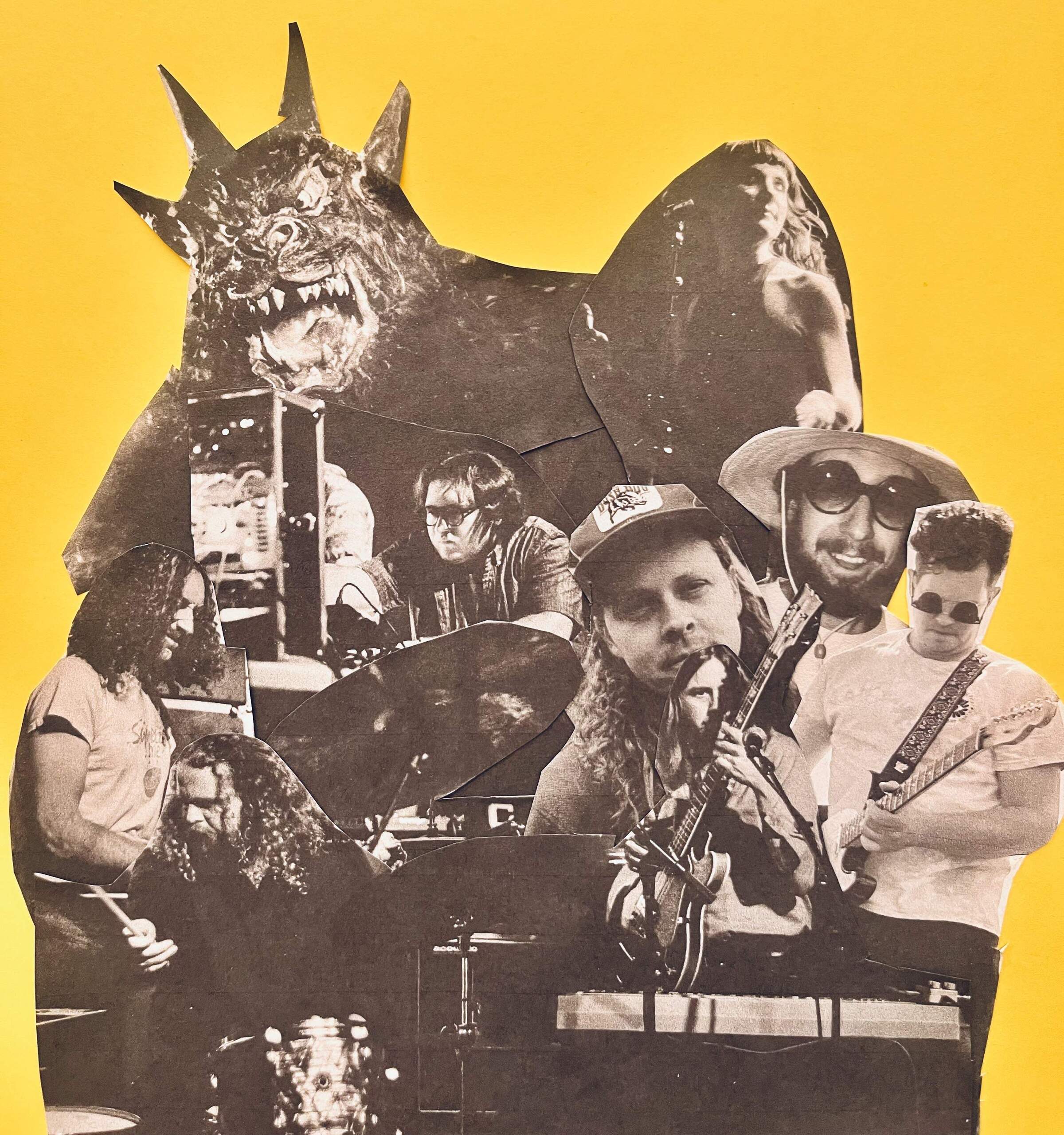Colombey | Interview | New Album, ‘La Fenêtre sombre’
In the timeless realm of ‘La Fenêtre Sombre,’ it feels as if time is caught in a perpetual standstill, decomposing into fragments of forgotten memories.
The music flows like a stagnant pond, where every note captures the weight of nostalgia, inviting us to relive echoes of the past. A cathartic plunge into the dark recesses of the human psyche, where feelings emerge as haunting specters. As the artist sifts through the murky waters of memory, he crafts a reality that’s both familiar and otherworldly, reminiscent of that last glimpse before the lights go out. Each track is a journey through a maze of introspection, forcing us to confront the visceral essence of our own existence.
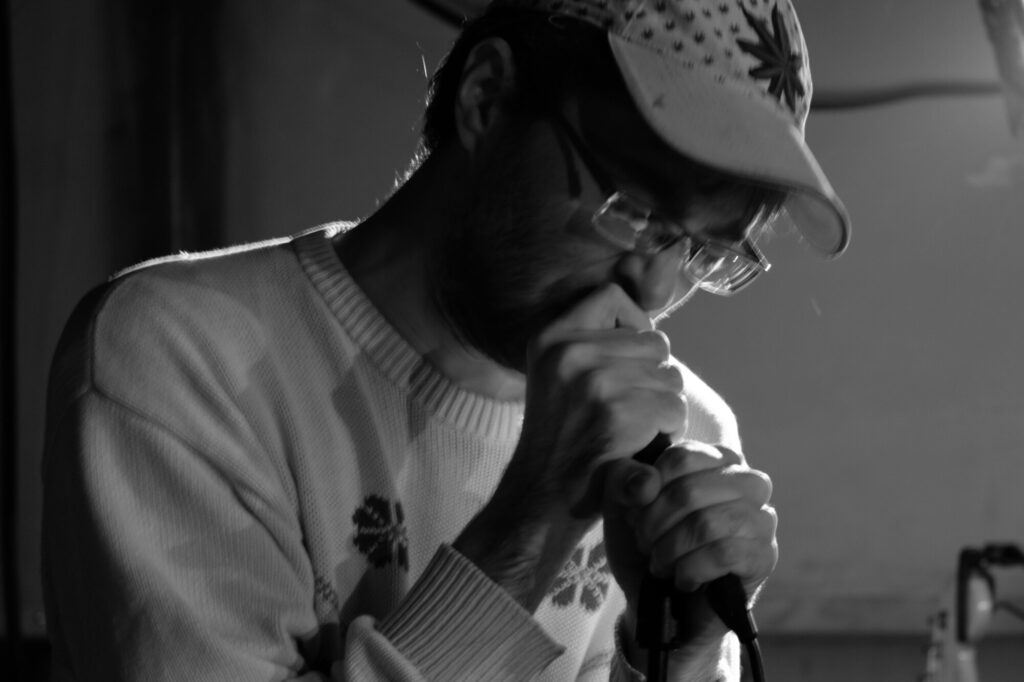
“Songs about lost loves, missed chances, regrets of all kinds”
‘La Fenêtre Sombre’ has been described as a “gritty, melancholic punk project.” Could you explain what melancholy means to you, both musically and personally? Is it a creative force that fuels your work, or is it more of a weight you carry through your compositions?
I’m not entirely sure what melancholy is; I think it’s what people used to call depression a long time ago. But I imagine it as something a bit more subtle than what we call depression today—less clinical, perhaps more like a bodily reaction to cope with an unpleasant situation or pain. I’ve always loved the good old dramas in cinema and the tear-jerker songs, but why? I don’t really know. I also enjoy lots of other things, and I write pieces that aren’t melancholic at all. But yes, with this project, Colombey, I wanted to explore this side of humanity. I must have thought at some point that I understood the subject enough to express something about it.
There’s a kind of song I’ve always adored—those sentimental slow songs from the ’50s and ’60s, best embodied in the musical style known as “doo-wop”: songs about lost loves, missed chances, regrets of all kinds. But it’s a fairly light kind of melancholy that you can almost get drunk on. The melancholy in Colombey’s music, however, is often much darker, much more despairing. Sometimes it feels strange to sing these songs over and over on stage, but most often, I can let myself go, embodying these pieces and feeling what they hold. So, is it a burden I constantly have to free myself from, or a force that drives me to create? I’d say it tends to blend together at every stage, from creation to performance.
Your album evokes stories of boredom and broken lives among teenagers. How do you think the ghosts of our teenage years shape who we become as adults, especially in the context of the isolated towns in northeastern France? Is there something fundamentally timeless about youth’s angst that keeps drawing you back?
I’ve always been fascinated by films, books, and songs about adolescence. As a teen, I would see myself in those stories, which were much more thrilling than my own adolescence, which was boring, lonely, and sad. As an adult, I realized that my teenage years had been a completely wasted period of my life—not really any intense drives until I discovered drugs; mostly boredom, loneliness, and a lot of sadness. There must be some kind of void within me, and I think that’s why I felt the need to revisit it.
Not long before starting Colombey, I had begun incorporating specific geographical elements into my songs, referencing my home region, the Brie. Then I thought that this mix of adolescence and rural life was interesting and unique enough to become the central theme of a musical project, and that’s how Colombey started. But as the years and songs went on, I think I gradually let go of the theme of adolescence; on the last two albums, aside from maybe one track, there’s nothing that specifically deals with adolescence.
The use of old organs in your recording process gives ‘La Fenêtre Sombre’ a certain raw and worn texture. What attracted you to these instruments? Do you see a parallel between the physical decay of these instruments and the themes of decay in your music, whether it’s the decay of places, relationships, or even oneself?
Shortly after I started recording music, I bought a Farfisa organ that I found at a garage sale for a ridiculously low price. I loved it right away, especially all the presets and pre-programmed rhythms; it was very easy for someone like me, who never learned music, to use. I took that Farfisa on my first tours. Over the years, I collected other instruments from the same family, and I met friends who had some too, so I became very familiar with this type of keyboard. When I started the “Colombey” project, I imposed a set of constraints on myself; one of them was to use only pre-programmed rhythms, which led me to use these machines.
Often, the machines I use are a bit “washed out,” worn out, damaged, and you can feel it in the sound—and obviously, at that point, the weariness of an instrument worn down over the years perfectly aligns with the evocation of a somewhat decayed past. But I don’t want to over-theorize: it’s mainly financial and technical limitations, along with a desire for simplicity, that drive me to use old, low-quality instruments. The same songs could exist with a symphony orchestra; that would be even stranger, more surprising, and probably less expected than the combo of an old organ and strong beers.
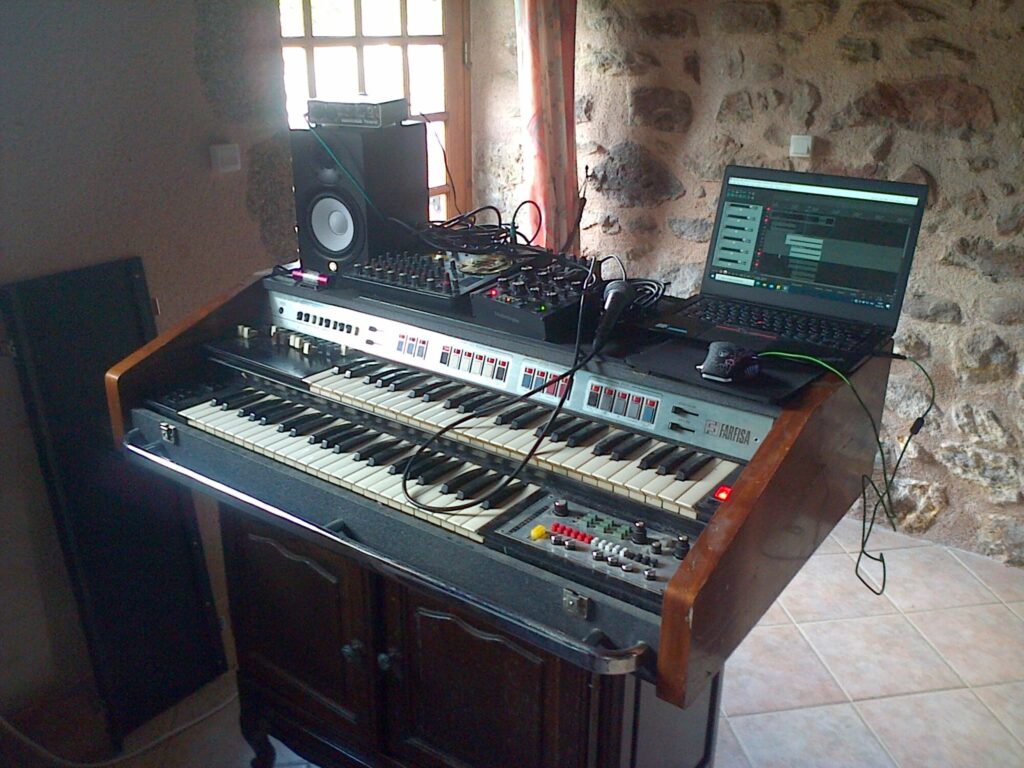
“The shooting location had to be the actual place”
The album seems to paint a vivid picture of the “lost communes” of northeastern France. To what extent do you think the physical landscape of these places influences your sound? Could ‘La Fenêtre Sombre’ have been born in another environment, or is it inextricably tied to this particular geography?
When I get asked this type of question, I instinctively think of filmmaker Eric Rohmer, who was obsessed with geographic precision in his films: the shooting location had to be the actual place where the story took place, and all the characters’ movements had to respect the real geography.
I come from the same school of thought: for me, the initial pleasure when I started writing these songs was setting them in real places, not in an archetypal city or an interchangeable village. Each of my songs is set in a specific place that exists in reality. I may not explicitly name it, but I know exactly which street or house I’m referring to. When I can’t physically immerse myself in the landscapes and territories, I rely on a roadmap. With a map, I can do what the little yellow guy on Street View does—I have a way to mentally dive into the map and move through the streets with my mind, because I have an excellent sense of direction and a great memory for streets and cities.
But it’s now been 15 years since I left the Brie region, so you could rightfully criticize me for using that territory only as a backdrop. Maybe all the songs on the last album actually take place in Anderlecht.
There’s a palpable sense of solitude in your music, almost as if the listener is left alone in a vast, echoing space. How do you approach creating this atmosphere in your work? Is it a reflection of personal experiences, or is it more of an aesthetic choice to serve the album’s narrative?
This is mainly due to my creative process, which is usually completely solitary: the music of a musician who composes and records alone in their modest home studio doesn’t sound like that of a band recorded by a professional. I imagine it must sound a bit emptier. But beyond technical reasons, I genuinely love this lo-fi aesthetic, like what was created in the U.S. in the ’80s and ’90s. Discovering Daniel Johnston’s music profoundly moved me as a teenager. At 17, the two most important things I bought after my first summer job were a 4-track recorder and a video camera (I was equally obsessed with Sadie Benning’s lo-fi films). Since a very young age, I’ve immersed myself in that world—analog tapes, technical imperfections, gritty static—which I find profoundly beautiful, and not just as a fetish. When I discovered these modest works by modest creators, I was blown away because I found it infinitely more beautiful than the polished, well-produced, formulaic stuff. I found—and still find—much more poetry in it.
But again, I don’t want to theorize about this like a fine arts student: the sound of my songs is mainly constrained by my technical recording means (I do everything solo) and my own limitations; I know nothing about pure technique, and most of the time, it annoys me. I now work a lot with my friend Accou on the mixing of my records, and I’m super grateful to him for it—he really nails it and even manages to get me interested in the process.
Your music often seems to linger on the weight of the past, whether it’s personal history, the memory of places, or a collective nostalgia. Do you find comfort in revisiting these memories, or is it more of a compulsion, a need to process something that can’t easily be left behind?
Nostalgia, in its original meaning, is linked to exile, to the regret of one’s homeland, to the concept of “lack” as in “I miss something I once knew.” This concept is especially interesting to me because it’s tied to the past, memory, and recollection. Memory—or its counterpart, forgetfulness—is the theme of nearly all Colombey songs. So, nostalgia is both a force that drives me to create and a damn curse that follows me. Personally, I’d like to forget many things, but I just can’t. I really like that Jim Carrey movie where the characters erase each other’s memories.
A long time ago, I had a label and publishing house called “les disques de l’oubli” and “les éditions de l’oubli” (the records of forgetting and the editions of forgetting), because I wanted to promote forgetting as a positive value, as a personal ideal. I despise this made-up idea that says, “we must never forget”; it’s in newspapers all the time, about everything. Of course, we should try to forget! Otherwise, we’d all go mad.
You’ve described your work as “dirty punk.” There’s an intriguing juxtaposition between the raw, almost abrasive side of punk and the melancholic, almost tender moments in your music. How do you balance these elements? Do you see them as two sides of the same coin, or is there a tension that fuels your creative process?
The term “punk” likely applied more to the early pieces of the project than to this latest album. Back then, I did everything in a more rushed, spontaneous way, on a 4-track cassette recorder. The vocals were shouted, the rhythms were faster, even though I sometimes already did a few slow tracks. At least in part, there’s still a desire to get to the point without beating around the bush. So, I’ve always favored a limited, simple, unadorned vocabulary because, for this project, I want to develop a direct and straightforward expression with as few metaphors as possible. Nothing hidden behind the words, and above all, no irony. People are so used to listening to stuff filled with irony and second-degree takes that sometimes they think Colombey’s lyrics are some kind of joke.
The title ‘La Fenêtre Sombre’ (The Dark Window) is evocative and rich in metaphorical potential. What does the window symbolize for you? Is it a means of looking out into the world, or perhaps a way of introspection, a view into the darker corners of the mind?
This window evokes a personal memory, something very real—almost exactly as expressed in the song. It’s a real window, and when I passed by it, long after I’d known it, it was dark—I built a song around this vision. It’s a more personal piece than most of the others, but I believe that’s true of most of the tracks on the last album.
I didn’t consciously build a second layer of metaphor into the lyrics of this song; it’s a song about death, mourning, the feeling of abandonment. The window is dark because there’s no one there anymore.
Your music often feels like it’s telling a story, even without lyrics. How do you approach the idea of storytelling in your compositions? Are there specific stories or images you hope to evoke in the listener’s mind, or is the storytelling more abstract, allowing for personal interpretation?
Of course, it depends on the specific track: some tell almost a full story, like a short story would—others evoke more of a sensation or feeling, a moment, an impression, which I explore more poetically than narratively. Overall, though, I have a fair number of tracks that include some storytelling, like snapshots of life moments, sometimes very brief—like the track ‘Dans la caravane’ (In the Caravan): in just a few lines, it evokes the rich years of a young couple of ravers living in a caravan in Saint-Germain-sous-Doue. Or ‘Le compte est bon’ (The Account is Closed), which tells the story of a guy whose girlfriend leaves him, taking all his money to the south of France. ‘L’eau noire’ (Black Water) is about a teenager living in a village near Romilly, who, over the summer, rides his bike to hang out with some rough guys in the social housing of the city—it doesn’t end very well. I could find many other examples.
A few years ago, I wanted to release a cassette of Colombey tracks without vocals, but the labels I approached told me it didn’t quite work. So I suppose the vocals are essential, and that it’s the whole package that makes sense.
Isolation seems to be a recurring theme in your work. In an increasingly connected world, do you feel drawn to themes of disconnection and solitude? How does this reflect your relationship with the world, and how do you think your listeners might connect to these feelings of isolation?
The isolation mentioned in Colombey’s songs is primarily geographic—it’s the isolation of the village, far from everything and everyone, far from the big cities, from the bustle: cities are places of success. The vision of 2024 is about the same as it was in the ‘50s: only losers stay in the countryside. 70 years later, we could perhaps move on from that narrative, but today’s society judges very harshly those who prefer the countryside, slowness, isolation, those who don’t want a smartphone, or social media—they are mercilessly cast aside, and might even soon be outlawed. They won’t be able to do anything without a damn QR code.
In my songs, though, I don’t address any of this from a political perspective; my approach is more personal, focusing on the individual, their daily life, their feelings. Solitude is, of course, one of the main themes I tackle. Solitude—maybe it speaks to a few people on this planet, even those who have chosen to buy a smartphone.
The stories in ‘La Fenêtre Sombre’ seem to take place in a time that feels suspended, almost like time itself is decaying. Do you think of time as something fluid in your work, or is it more like a stagnant pool where memories and moments are trapped, slowly rotting away?
I had never thought about it before, but I think your image of a stagnant pool is quite fitting. In several Colombey songs, there’s the recurring idea of recording memories directly from the brain to “replay” them, which would lead to a kind of timeless representation, almost in another dimension: a memory, standing alone in the middle of a black and infinite space. Maybe that’s what the last vision before death looks like.
Memory can be a powerful yet unreliable tool in the creative process. How does memory influence your music? Do you consciously try to capture specific memories, or is it more about the general feeling those memories evoke, which you then translate into sound?
My personal memories and impressions are often the basis of the creative process, but the events precisely depicted in the song are usually invented, or they’re a disguise of reality. The songs can also be an adaptation of a story someone told me, something I never experienced myself, but that I try to make my own by projecting myself into the situation. I don’t aim for autobiographical work, and that’s why, when I started this project, I claimed to be from the Haute-Marne department (where I’ve never lived): I didn’t want people to think I was telling my personal life.
To speak more specifically about my creative method, I’d say the introspective work that leads to writing a song is quite painful—I dive deep into myself, into my psyche, to extract sensations that first take shape as hesitant notes, then gradually become more refined. It’s a form of dark trance, and I always dread the moment I have to start, as it’s rarely pleasant.
Your music invites deep, personal reflection, and yet it also feels like a dialogue between you and the listener. How do you envision your audience’s role in the experience of ‘La Fenêtre Sombre’? Do you see your music as a personal journey that others are invited to witness, or is it more of a shared experience where the listener’s interpretation completes the work?
From the moment I’ve recorded the albums and performed my concerts, the rest is no longer my concern. I like to think these songs are helpful to those who listen to and appreciate them, that they can make them their own and do with them as they please, but I have no control over that. If the songs are listened to, that’s already very rewarding; if they’re appreciated, that’s even better—and then, it all stops there for me.
What’s the next step for Colombey?
Throughout September I was be on the road in France and Switzerland. I haven’t started writing new songs yet; I first need to digest this album and focus on recording other projects in the coming months.
‘After La Fenêtre Sombre,’ do you see your music moving in any particular direction, or are you content to let it evolve organically? Are there themes or ideas you haven’t yet explored that you’re eager to dive into, or is there a sense that you’re still uncovering layers of the themes you’ve already touched on?
At the origin of the project, I had a very strong desire to create hundreds, even thousands of songs, all addressing the same subject, never deviating from the initial idea of endlessly repeating the same litany, breaking records of production and productivity, straining my voice to sing the misery of the Northeast. Of course, over the years, I’ve started to refine each piece a bit more, reaching a level of maniacal demand—today, a single song by Colombey can literally take me several weeks of work. In terms of content, the themes have also evolved somewhat, but I still hold on to the idea of mining the same vein, although much more slowly. To address everything else, I have plenty of other pseudonyms.
Let’s wrap up this interview with some of your favorite albums. Have you recently found something new that you would recommend to our readers?
The answer can be found every two months in a radio show I host on LYL Radio called The Last Hour: I present (in French, sorry for the non-French speakers) all the new releases from my surrounding scene, which is truly exciting. The Franco-Belgian scene has been historically rich for about ten years now: it’s a blessed time to make music in France and Belgium, with so many talented musicians, passionate labels, local initiatives, incredible concert venues, and festivals. It’s thanks to all of this and all the people around me that I can continue making new albums and going on new tours with Colombey.
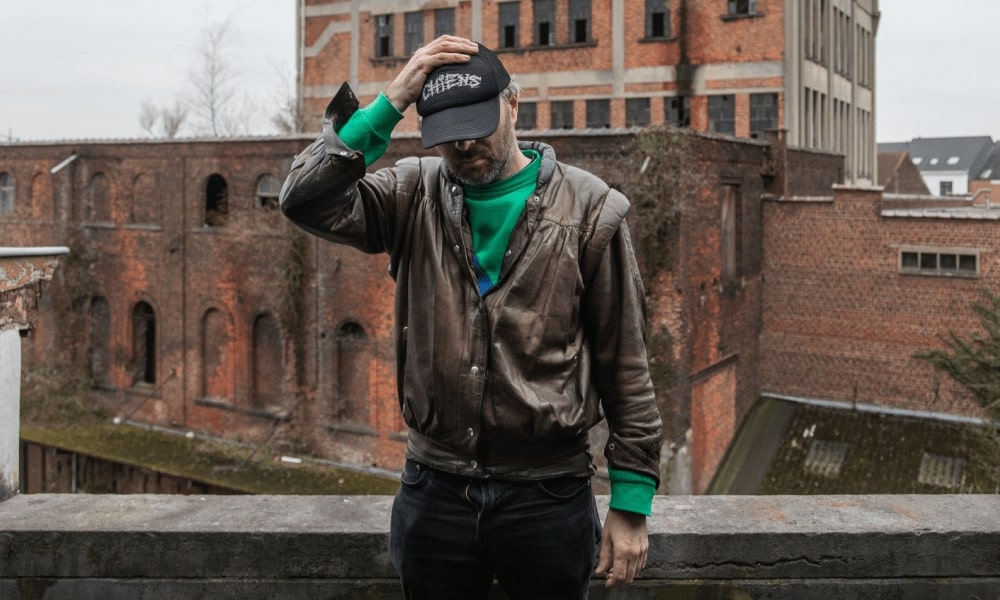
Thank you. The last word is yours.
Thank you for this interview; it was a difficult exercise because I rarely have the opportunity to reflect on my own creations. I hope no one got too bored!
Klemen Breznikar
Colombey Facebook
Jelodanti Records Official Website / Bandcamp / YouTube

